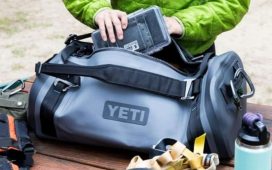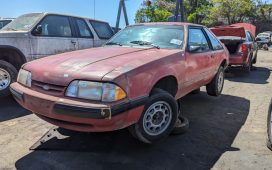Volkswagen’s plans to pull out of Russia have been jeopardised after a court froze its assets in the country pending a lawsuit by sanctioned oligarch Oleg Deripaska’s Gaz Group.
The German company announced last year that it would stop making cars in Russia. This included its plant in Kaluga, where it still pays roughly 4,000 employees to stay at home, and an automotive assembly plant in Nizhny Novgorod, which it ran with Russian carmaker Gaz.
Gaz last week filed a lawsuit against VW, disputing an agreement the two had struck to end a collaboration that was due to run until 2025, and called for VW’s assets to be frozen as it said the carmaker planned to leave the country “in the nearest future”.
The court responded to Gaz’s claim for Rbs15.6bn ($204mn) by freezing VW’s shares in its Russian subsidiary Volkswagen Rus, as well as several factories, manufacturing equipment and shares in four separate financial services companies.
“We are surprised to receive the claims from Gaz exactly at this stage,” VW said, adding that the two had had a “good business relationship [and] ended our partnership on mutually agreed conditions in mid-2022”.
The company added that it had applied for approval by Russian state authorities to sell its business in the country, including the plant in Kaluga, to a “reputable Russian investor”.
“We hope that the claim will not lead to a delay of the transaction, which aims to secure employment and work for the affected employees,” VW added.
Gaz did not immediately respond to a request for comment.
VW wrote down the value of its Russian business by almost €2bn last year, but would not comment on the exact value of its remaining business — which includes car financing, lease contracts and repairs — and is used to pay furloughed employees of the Kaluga plant. One person with an oversight of the situation said “we’re not talking about billions”.
Herbert Diess, the company’s former chief executive, had said when the Ukraine war broke out last year that its assets in Russia represented roughly 0.5 per cent of the group’s total.
VW’s woes highlight the challenges that western companies face as they try to find solutions for their Russian businesses.
Every company from so-called “unfriendly countries” — the list includes EU members and the US among other jurisdictions — is required to receive state approval to sell its business in Russia.
Official criteria for this approval are onerous: the value of a business will be determined by Russian authorities and subject to at least a 50 per cent discount.
A seller can then choose to receive the money in instalments over several years, or else make a “voluntary donation” equivalent to 10 per cent of the transaction value directly to the Russian government.
German gas explorer Wintershall Dea said last month it was considering suing the Kremlin, after it decided to expropriate its business in the country, wiping €2bn off its accounts.





